Phu Quoc captivates travelers with its emerald waters, powdery white sands, and refreshing tropical air all year round. Yet, at certain times, this island paradise welcomes an uninvited guest – the Phu Quoc jellyfish. Understanding this natural phenomenon will help you feel more at ease while swimming or snorkeling. This article provides a detailed guide on jellyfish season, prevention tips, and proper treatment methods. Join Corona Resort & Casino to learn more and make your beach getaway both safe and unforgettable!
Understanding the Phu Quoc Jellyfish Phenomenon
During the warm-water months, especially from late November to mid-December, the waters around Phu Quoc often host clusters of jellyfish drifting gently near the shore. In early summer (April to May), small jellyfish may also appear as changing currents and stronger sunlight pull them into shallow waters rich in plankton – their favorite food source.
At popular snorkeling spots such as the Phu Quoc Coral Reef or the southern coast, jellyfish are usually seen individually rather than in large groups. Under sunlight glimmering through the clear blue sea, their transparent, umbrella-like bodies shimmer like crystal domes, creating a mesmerizing underwater scene. For many travelers, spotting jellyfish while diving can be a unique and memorable encounter.
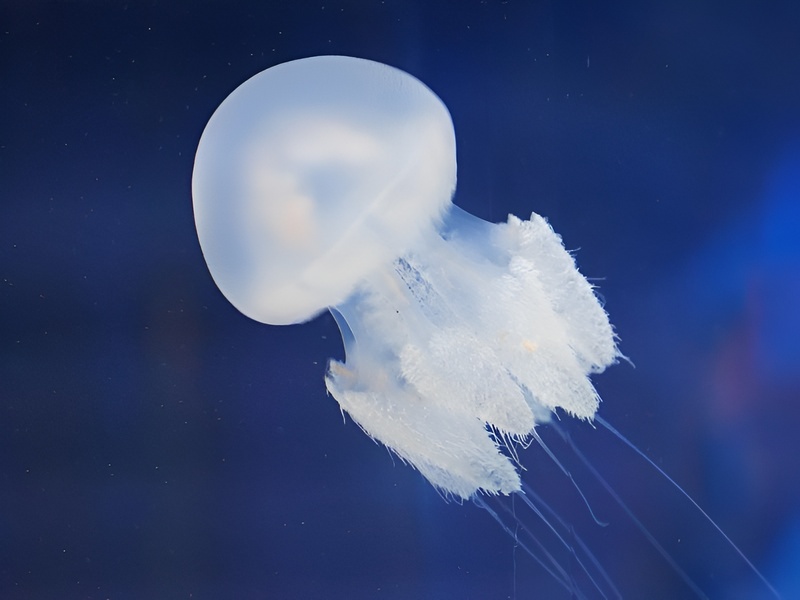
Phu Quoc’s waters are home to various species such as the Moon Jellyfish, Comb Jellyfish, Crown Jellyfish, and the vibrant Fire Jellyfish. Rarely, the Four-Handed Box Jellyfish – known for its strong venom – has also been sighted. While jellyfish are considered a local delicacy, swimmers and divers should always keep a safe distance, as even a light touch can cause a burning or stinging sensation on the skin.
A Practical Safety Guide for Swimming and Snorkeling
Snorkeling in Phu Quoc is one of the island’s most captivating experiences, offering visitors a chance to admire the vibrant marine world beneath the waves. However, during jellyfish season, understanding basic safety measures is essential to keep your trip both enjoyable and worry-free. Below are practical tips to help you stay protected while exploring Phu Quoc’s beautiful ocean.
Wear Protective Swimwear
When swimming or snorkeling in open water, proper clothing can help reduce the risk of jellyfish stings or irritation from marine life.
- Wear long-sleeved swim shirts, full-length swimwear, or wetsuits for better coverage.
- Choose stretchy, snug-fitting materials that allow easy movement and help retain warmth.
- Limit the use of sunscreen to protect coral reefs and prevent it from washing off in the waves.
Tip: Opt for light-colored or patterned swimwear to make yourself more visible to your group while diving.
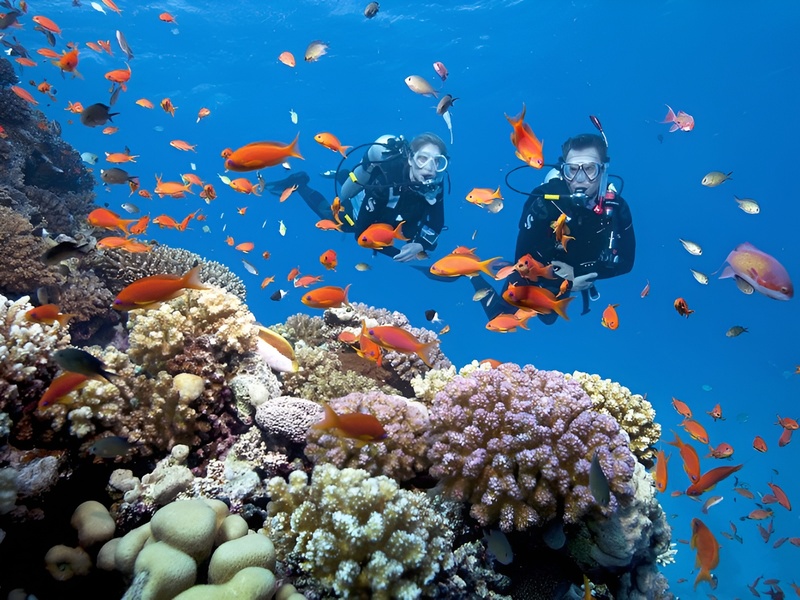
Stay Observant and Keep a Safe Distance
Phu Quoc Jellyfish often move with ocean currents, so being aware of your surroundings is key to staying safe.
- Avoid swimming in strong currents or murky waters where visibility is low.
- Refrain from swimming after heavy rain or during high tide, as jellyfish are more likely to be washed closer to shore at these times.
- If you spot shimmering shapes or transparent blobs drifting near the surface, keep your distance – they could be jellyfish.
- Move slowly while snorkeling and stay alert to avoid sudden contact.
Note: Most jellyfish are harmless and do not actively attack humans, but accidental contact can still cause a burning, itchy, or stinging sensation on the skin.
Stay Calm When Encountering Jellyfish
If you spot a jellyfish nearby, the most important thing is to stay calm and avoid sudden movements.
- Identify the direction of the current, as jellyfish usually drift along with it.
- Swim diagonally away from the main current instead of swimming directly against it.
- Avoid splashing or making strong movements, which might push jellyfish closer to you.
- If you notice a jellyfish with long tentacles or suspect it to be venomous, inform your guide immediately for assistance.
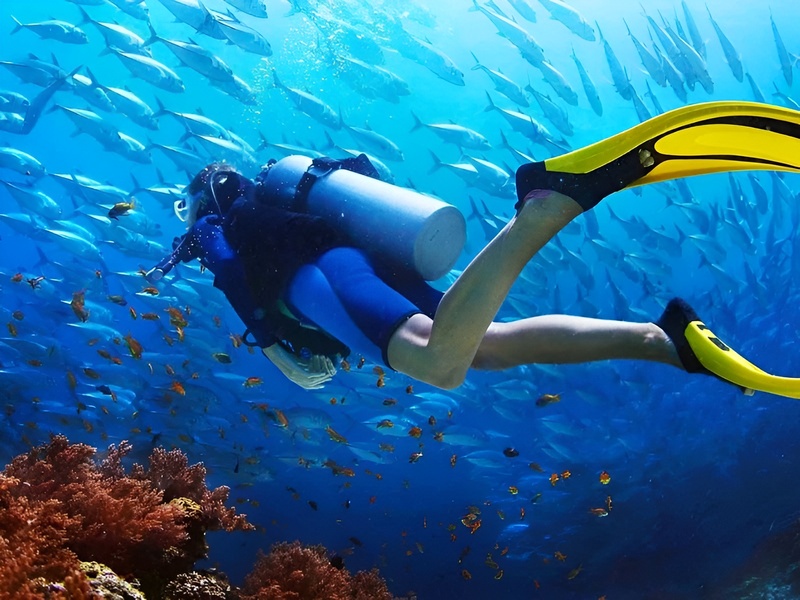
Warning: Species with long, thin, and transparent tentacles, such as the Four-Handed Box Jellyfish, can be highly venomous — keep a safe distance at all times.
Choose a Reliable and Professional Diving Operator
For maximum safety, it’s best to join a snorkeling or diving tour run by a professional operator, where you’ll be:
- Provided with proper safety gear and detailed instructions before entering the water.
- Accompanied by a trained guide or instructor who monitors your group throughout the dive.
- Supported with vinegar solution and first-aid kits readily available in case of jellyfish stings.
Joining a reputable tour ensures not only your safety but also a more enjoyable and worry-free underwater adventure in Phu Quoc’s crystal-clear waters.
How to Prevent and Treat Phu Quoc Jellyfish Stings
Even with careful preparation, accidental contact with jellyfish can still happen while swimming or snorkeling. Most jellyfish stings in Phu Quoc cause only mild pain or itching, but in some cases, the venom may lead to swelling or blistering of the skin. Knowing how to prevent and treat stings properly will help you stay calm and confident while enjoying your ocean adventures.
Proactive Prevention: Lotions and Repellents
Prevention is always the best way to avoid Phu Quoc jellyfish stings during your seaside getaway. Before entering the water, apply a jellyfish repellent lotion or protective skin solution to create a thin barrier between your skin and jellyfish tentacles. These products often contain mild neutralizing agents that reduce the chance of venom activation upon contact. You can easily find them at local dive centers or tourist shops around Phu Quoc.
In addition, maintaining good skin hygiene after swimming is important. Once you return to shore, rinse your body with freshwater to remove salt, sand, and lingering marine particles. This simple step not only keeps your skin healthy but also helps minimize irritation caused by residual Phu Quoc jellyfish venom. With a bit of preparation, you can fully enjoy Phu Quoc’s sparkling blue waters in complete safety and peace of mind.
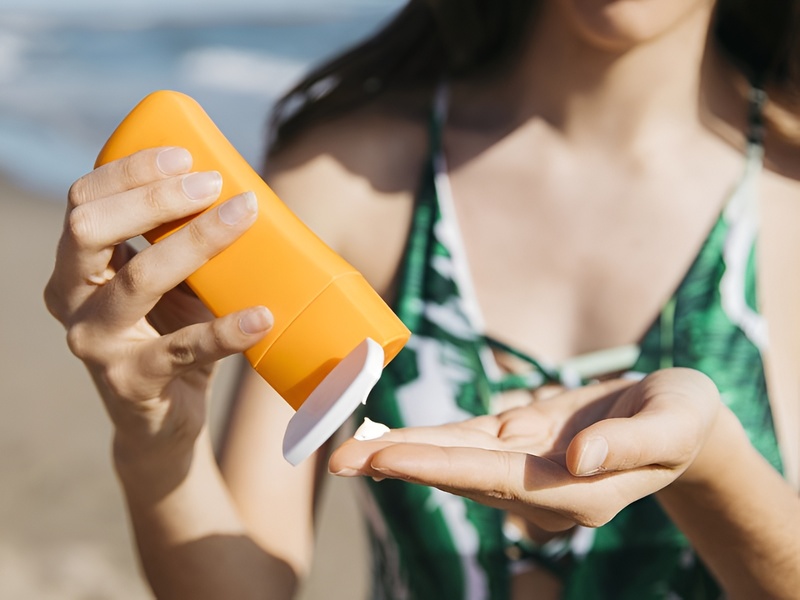
Step 1: Immediate Actions After a Sting
If you are accidentally stung by a jellyfish, handling it quickly and correctly will help reduce pain and prevent further skin damage. You should never use your bare hands to remove the tentacles, as the venom may still be active and cause a burning sensation. Follow these steps:
- Leave the water immediately to avoid additional contact with the tentacles.
- Stay calm and do not rub or scratch the affected area.
- Rinse the sting area with vinegar for at least 30 seconds to neutralize the venom. If vinegar is not available, use seawater — never use freshwater.
- Use tweezers or a hard object (such as a plastic card, chopsticks, or gloves) to gently remove any tentacles still attached to the skin.
Step 2: First-Aid “Do’s”
After completing the initial steps, you can take several additional measures to relieve pain and reduce redness:
- Soak the affected area in warm water (40–45°C) or apply a warm towel for 20–45 minutes to soothe the burning sensation.
- If warm water is not available, use a heating pack or warm saline solution.
- Watch for symptoms such as dizziness, difficulty breathing, or nausea — if any occur, seek emergency medical help immediately.
- You may take mild pain relievers or antihistamines if recommended by a doctor or medical guide.
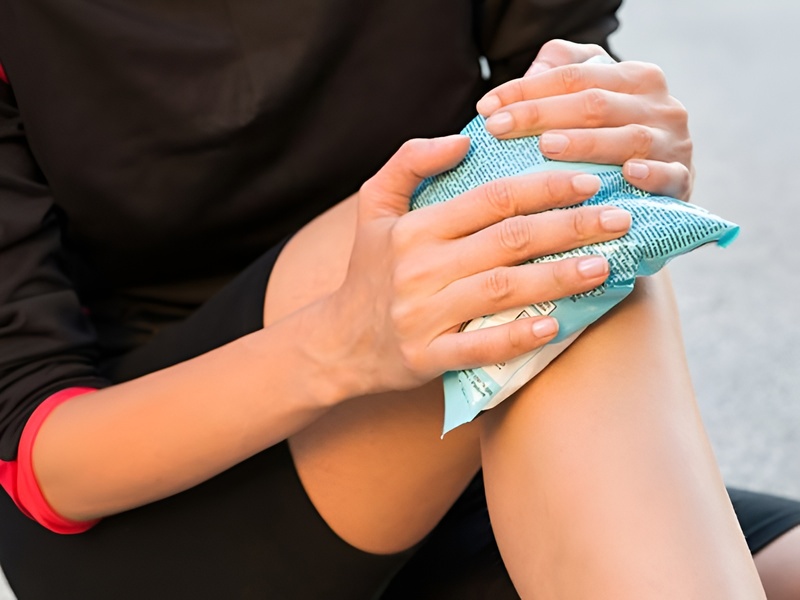
Step 3: First-Aid “Don’ts”
Some incorrect methods can make the injury worse. Below are the things you should absolutely avoid:
- Do not use freshwater, cold water or ice directly on the sting — it may activate more venom cells.
- Do not rub, scratch or apply sand, mud, or urine to the wound — these are incorrect folk remedies.
- Do not try to scrape or peel the skin, as this may cause deeper tissue damage.
- Do not ignore allergic reactions such as swelling, red rashes or difficulty breathing — go to a medical facility immediately.
Although most jellyfish stings in Phu Quoc cause only mild pain, severe reactions can occur in people with sensitive skin. Do not underestimate unusual symptoms, and seek help promptly if they appear.
When to Seek Medical Help
In most cases, mild Phu Quoc jellyfish stings can be treated with warm water and rest. However, in some situations, the body may have a stronger reaction that requires timely medical attention. Recognizing the warning signs early allows you to protect your health and prevent serious complications.
You should call for emergency help or go to the hospital immediately if you experience any of the following:
- Severe allergic reactions, including headache, dizziness, nausea, difficulty breathing, muscle spasms or bluish skin.
- Suspected Box Jellyfish sting – this species has potent venom that can cause anaphylaxis or cardiac arrest if not treated quickly.
- Large or extensive stings, where the affected area covers more than half of your arm or leg and is accompanied by swelling, blistering or intense pain.
- Symptoms lasting more than 24 hours, even after proper first aid or signs of infection such as swelling, redness, heat, or fluid discharge.

Medical centers in Phu Quoc – especially around Duong Dong and An Thoi – are well-equipped to treat jellyfish stings. If you are joining a diving tour, you can ask your guide to contact local medical support immediately when needed.
The Phu Quoc jellyfish phenomenon is a natural part of the island’s marine ecosystem and can be easily managed with proper preparation. By following safety guidelines and understanding essential first-aid steps, you can fully enjoy your time on the island without worry. Whether you’re strolling along the beach, sunbathing, or snorkeling among colorful coral reefs, always keep safety in mind. Corona Resort & Casino wishes you a safe, joyful, and unforgettable journey along the beautiful shores of Phu Quoc.
